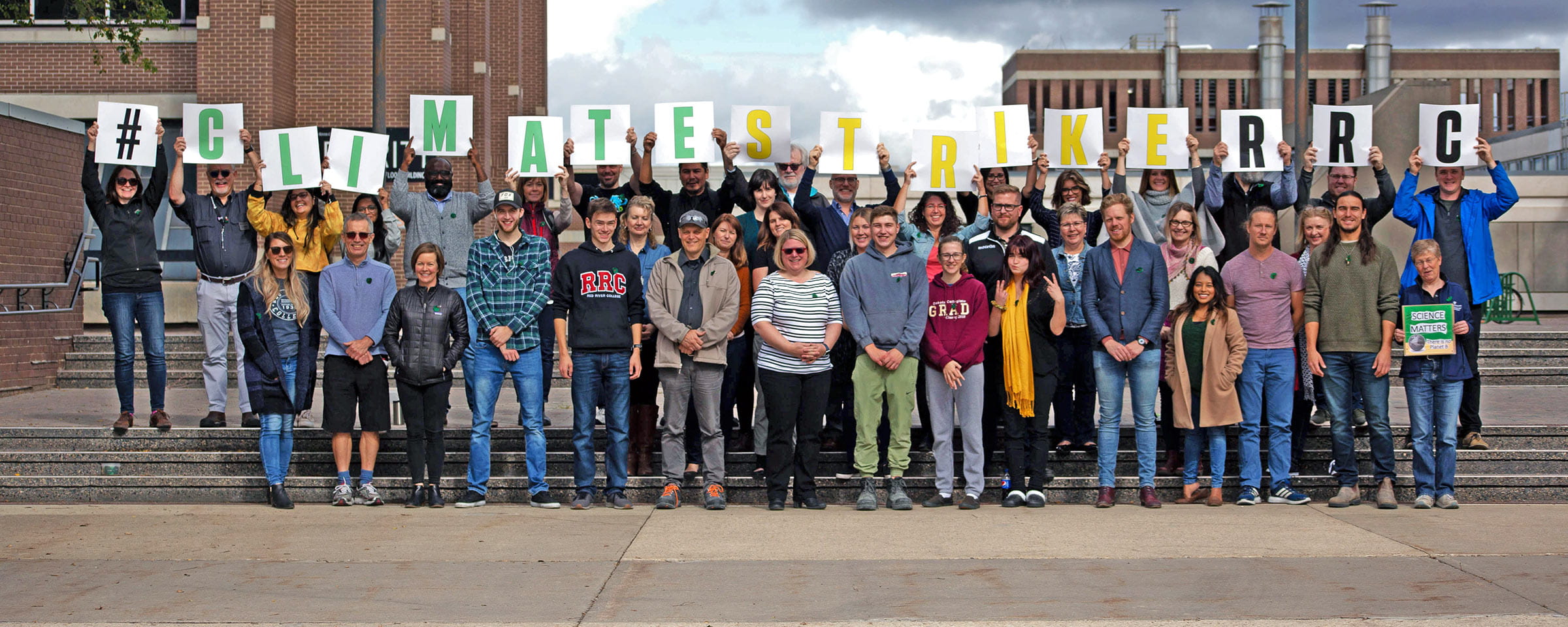The Compost Conundrum
What keeps a Sustainability Officer up at night? The thought of eggshells, food scraps and coffee grounds ending up in the landfill.
As many of you know, RRC is slated to open the Paterson GlobalFoods Institute (PGI) in January, 2013. Located in the historic Exchange District, this architectural marvel will deliver the College’s Culinary Arts, Hospitality and Tourism Management Programs. This means that students and staff working and schooling downtown will soon be able to dine on culinary delights and purchase warm breads and mouth-watering baking — my personal faves are the peanut butter brownies. On top of these programs (literally), floors 4 – 10 will house the College’s first student residence.
While this project is exciting for many reasons, putting a culinary school, three restaurants and a 100-bed student residence is a downtown setting can pose some operational challenges. This brings me to my initial question of why I’m tossing and turning over organics instead of counting sheep.
How are we going to compost our food waste from this downtown location?
When considering this question, lots of thoughts and uncertainties come to mind. The Who, How, When, Where and How Much of a compost program need to be answered. Fortunately, one thing is clear to everyone working on this project – we must have a compost program at PGI. Because we’ve operated a compost program at the Notre Dame Campus (NDC) for more than a decade and because the College’s commitment to sustainability has only grown over the years, as Culinary Arts Instructor Jeff Gill puts it, “we need to have a compost program at PGI. We can’t go backwards.”

Here are a few things we’re thinking about as we wade through this challenge.
- While your apple core may seem pretty harmless, food waste is actually a significant source of greenhouse gas emissions. Food waste in a landfill gets buried under other trash and doesn’t have access to oxygen and quickly rots, turning into a significant source of methane gas. In fact, the Brady Road Landfill is the single biggest source of greenhouse gas emissions in Winnipeg. Because of the high food production in PGI, the College must find an environmentally-sensitive solution to keep our food waste out of landfill.
- Arriving at a sustainable solution for our food waste must also consider the economic impacts of food disposal. While researching solutions to this conundrum I learned that the College saves more than $10,000 annually in landfill hauling costs by composting our pre-consumer food waste on-site. I was both surprised and happy to learn that the landfill costs were so high. “Why?”, you might ask. Because any organics program will have significant operational and/ or capital costs. It helps to know that the cost of “doing nothing” is also pretty significant. Understanding the landfill costs can help to establish a business case for more sustainable alternatives.
- Unfortunately there aren’t many options for organics collection in Winnipeg. Samborski Environmental Ltd. is the only gig in town. And while they do provide a diversion option, there are environmental and economic considerations of collecting and transporting organics to an off-site compost pile.
- We also need to consider the operational requirements of a compost program. PGI is located in a dense, urban setting. Because of this, we don’t have the benefit of a large loading zone and a designated area where we can stockpile our food waste for collection.
So that’s the compost conundrum. As Jeff Gill said, “we need to have a compost program at PGI”… and we will. We’re just struggling at the moment to come up with a solution that makes the most environmental, economic and operational sense.
What are your thoughts on the conundrum? Your feedback is appreciated.


